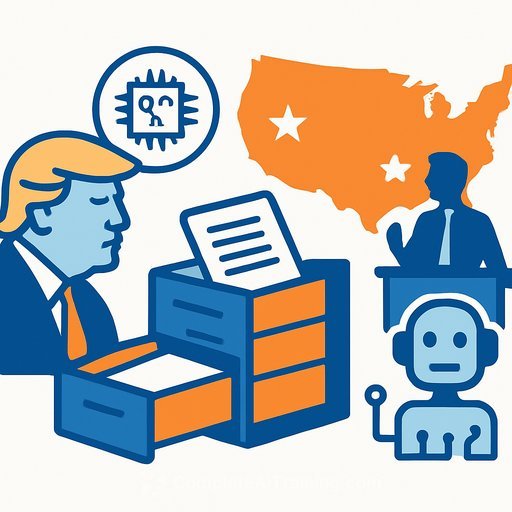Productivity Commission Urges Government to Pause Mandatory AI Guardrails
The government is reconsidering its approach to regulating artificial intelligence (AI) after the Productivity Commission advised a cautious path. The commission warns that stringent regulations could hinder AI's potential to contribute an estimated $116 billion to Australia's economy over the next decade.
Focus on AI at Upcoming Productivity Round Table
AI will be a key topic at the government's productivity round table later this month. The Productivity Commission recommends pausing plans for "mandatory guardrails" until existing legal gaps are clearly identified. While the government explores a comprehensive AI regulatory framework—including a potential AI Act targeting high-risk technologies—the commission stresses avoiding heavy-handed measures that could stifle innovation.
This stance contrasts with unions calling for stronger protections, including safeguards against job losses caused by AI automation. The commission acknowledges the need to close legal gaps exposed by AI but urges measured intervention rather than broad, restrictive legislation.
Balancing Regulation and Innovation
The government plans to align with international approaches, such as those in the European Union, by applying a risk-based regulatory model. This model imposes stricter rules only on high-risk AI applications while allowing low-risk tools to operate with minimal interference.
Commissioner Stephen King emphasized that adding AI-specific regulations prematurely could slow Australia's economic growth and leave the country trailing global competitors. He recommends that mandatory guardrails be limited to cases where existing laws cannot mitigate harm and where technology-neutral regulation is insufficient.
The Economic Opportunity of AI
AI's economic promise is significant. The commission estimates that AI could boost labour productivity growth by about 4.3% annually over the next decade, compared to the historical average of 0.9%. This increase could translate into higher wages and improved living standards, addressing recent economic challenges like inflation and cost-of-living pressures.
However, the commission highlights uncertainty in AI’s impact, projecting possible productivity gains ranging from a minimal 0.05% to an unprecedented 1.3% annual uplift. It also acknowledges the potential for "painful transitions" as AI reshapes industries and displaces jobs. Globally, the World Economic Forum anticipates up to 9 million jobs may be affected, underscoring the need for retraining and worker support policies.
Government Response and Public Sentiment
Treasurer Jim Chalmers has expressed optimism about AI’s role in strengthening the economy while recognizing the importance of managing risks carefully. He supports treating AI as an enabler rather than a threat and aims to strike a balance between necessary regulation and fostering innovation.
Despite progress, public trust in AI remains low, with many Australians concerned about its potential harms. Delays in establishing a clear government response have contributed to investor caution and a "wait-and-see" attitude within the industry.
The government has signaled its intent to regulate AI "as much as necessary" but "as little as possible" to encourage growth, aiming for a responsible middle ground that maximizes benefits and minimizes risks.
What This Means for Government Professionals
- Expect AI regulation to be incremental and risk-based, focusing on high-impact areas while avoiding overreach that could stifle innovation.
- Prepare for workforce transitions, including potential retraining programs to support workers affected by AI-driven changes.
- Engage with ongoing policy discussions, especially at the upcoming productivity round table, to shape practical frameworks balancing economic growth and social protection.
- Communicate clearly with stakeholders and the public to build trust and understanding around AI’s benefits and risks.
For government employees looking to deepen their understanding of AI’s impact and policy considerations, exploring targeted AI training can be valuable. Resources such as Complete AI Training's latest AI courses offer practical knowledge suited to public sector roles.
Your membership also unlocks:






